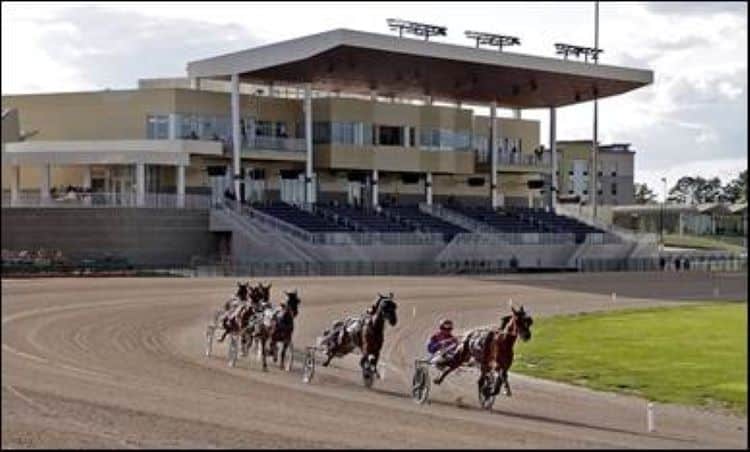Nobody will ever mistake suburban Buffalo (N.Y.) for Las Vegas, but the two locales share an invisible string.
Back in 2001, Amherst Town Justice Mark Farrell established the nation’s first therapeutic court for problem gamblers, five years after he founded the first suburban drug court in the United States. The idea behind these efforts was to provide rehabilitation and penalties other than incarceration to nonviolent offenders who committed crimes to feed their addictions.
By all accounts, Farrell’s innovations were successful.
“We were never able to get enough funds together to properly evaluate it, but anecdotally, the success rate was phenomenal, as it is for drug courts,” said Keith Whyte, executive director for the National Council on Problem Gambling.
After Farrell retired in 2013, the gambling court — the only one of its kind in the U.S. at the time — fizzled out. Four years earlier, however, Nevada had passed legislation authorizing a similar court in Las Vegas, but had yet to follow through by actually setting it up.
That changed in 2018, when Judge Cheryl Moss began presiding over Nevada’s Gambling Treatment Diversion Court.
“We developed a gambler’s contract — we get to monitor you, you’re kind of like an open book financially,” explained Moss, who passed her gavel on to another judge upon her retirement from the bench in early 2021. “They agree to do this program with us [for] 18 to 36 months. We get them treatment, they go to support groups like GA (Gamblers Anonymous). We monitor their budgets, do location monitoring with cellphones. They have to turn over their pay stubs and we help them get their finances in order. We do random drug testing and I see them every two weeks in my courtroom.
“The last thing we do is say, ‘You’re stable now. Let’s start talking about your budget and restitution.’ Some of them have over half a million [dollars owed as restitution], some have zero. I had sports bettors, poker players, slot machine players — gambling doesn’t discriminate.”
‘Addicts’ vs. ‘degenerates’
Yet in terms of how various addictions are perceived, people tend to discriminate against gamblers.
“There are 3,700 drug courts across the country, but only one gambling treatment diversion court,” said George Mladenetz, a New Jersey-based addiction specialist who’s been active in legislative efforts to get gambling courts up and running in the Garden State. “The successes of the drug courts are many. It’s about saving lives, getting people into treatment, and saving families as well. There’s a great stigma attached to the problem gambler. You’ve heard the term ‘degenerate gambler.’ Society in general doesn’t have a good working knowledge of gambling addiction and they don’t understand why people can’t stop.”
“If you have alcohol or drug problems, you’re sort of mandated to treatment or get reduced sentence time,” added Whyte. “Gambling addiction, if anything, is used against clients in these cases. In the courts, and in the court of public opinion, it’s not seen as a real disorder or disease, so judges seem to try and set a tone by throwing the book at people with gambling problems.”
Or, as one well-known recovering problem gambler, the talk-show host Craig Carton, put it on a recent US Bets’ Gamble On podcast, “Alcoholics are alcoholics, drug addicts are drug addicts, but gambling addicts are degenerates.”
"Alcoholics are alcoholics, drug addicts are drug addicts, but gambling addicts are degenerates." @craigcartonlive gets real about the double standard on this week's "Gamble On" podcast. pic.twitter.com/lGBUc99ivy
— US Bets (@US_Bets) February 25, 2022
As both Moss and Whyte point out, there are few, if any, treatment programs available to problem gamblers in prison, where wagering is rampant. So by diverting nonviolent offenders, who must maintain clean records in order to remain in Nevada’s program, Moss said the state is saving taxpayers the cost of incarcerating these individuals while ensuring that their addictions don’t get worse behind bars.
Ohio among states exploring gambling courts
Other states — including Ohio, where mobile sports betting is legal but won’t be operational until later this year — have taken steps to explore the installation of gambling diversion courts. How these courts come into being can vary: In smaller jurisdictions like Amherst, it can be as simple as a judge wanting to preside over them, whereas they often require legislative approval if statewide implementation is the objective.
“It all falls within the power of somebody that wants to take it on,” said Derek Longmeier, executive director for the Problem Gambling Network of Ohio. “If it was to be a specific gambling court, I think that would have to be a legislative process, but at least in Ohio, the specialty docket system that’s set up gives us a little bit of leeway.
“We’re looking at treatment in lieu of incarceration for nonviolent crimes,” he continued. “We’ve been in a tough situation recently. In the last four years, two of our county sheriffs were arrested — and I think at least one is now in prison — as a result of their gambling problem. If you look at the justice system, there’s a whole lot of gambling that’s going on in prison, so putting them in prison isn’t going to help move them to where they need to be.”
But for all the states that would love to establish diversion programs, lack of funding for problem gambling services remains a massive challenge.
“When faced with these hellish choices on what to fund, gambling court is not one of the critical services,” conceded Whyte.
This sentiment was echoed by Jim Maney, executive director of the New York Council on Problem Gambling, who added, “We have so many more things to get done before that — additional treatment and recovery, our own helpline. It’s something that needs to get done, it’s just not our top priority.”
New Jersey seeks to establish pilot program
New Jersey, which was the first state outside of Nevada to offer sports betting once PASPA was struck down, may be further along than any other jurisdiction in following its western counterpart’s lead. Bills in each of Trenton’s legislative chambers would establish a “Gambling Treatment Diversion Court Pilot Program” throughout the state, and both are awaiting committee action.
“This is a result of the over-marketing during COVID,” said Assemblyman Ralph Caputo, who’s co-sponsoring the legislation and expects it to clear committee in a month or so. “Many people have gotten addicted without even trying. It’s really over the top. Some people have committed minor crimes. This’ll be a good way to get them out of the prison system and rehabilitate them.”








